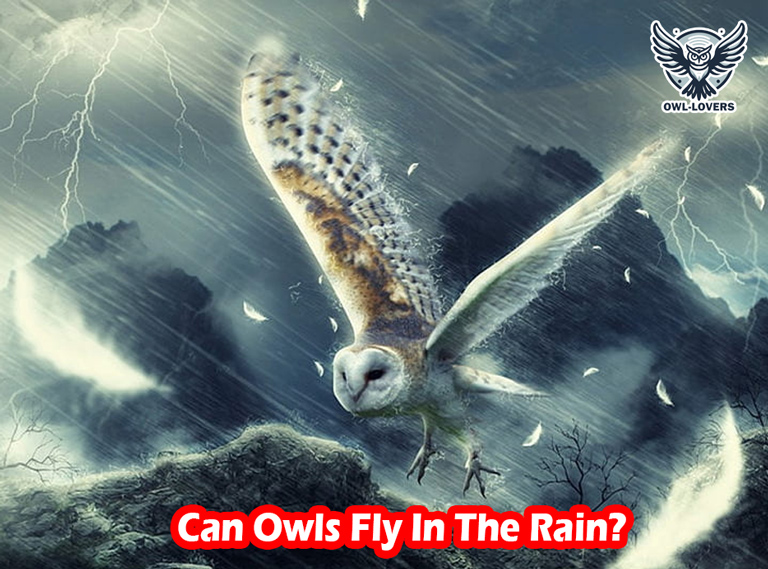Blog
Can Owls Fly In The Rain?
Nothing about owls makes it seem like they will be scared of unfavorable weather. Owls truly can fly when it rains a little bit. But is there any limit?
Since we don’t exactly go out and observe nature as commoners, the question must have been poking at your mind for a while.
Let’s have a quick look into what our owl friends do on rainy nights if you have been worried about them!
Can Owls Fly In The Rain?
The short answer is yes. Owl wings are strong enough to keep them afloat even with the rain weighing them down. If the situation is dire, they can still fly quite well.
However, when the rain is heavy and stems from a storm, the story is different. The flight ability of the owls decreases dramatically because the continuous drops put so much pressure on them and hinder their senses.
Love Owl, check now: Owl Jewelry Collection
Their Hunting Ability In The Rain
Owl wings are made for soundless flights and not for water endurance. Hence, they will be slowed down so much, to the point it is difficult for them to hunt like they usually do.
The rainfall will undoubtedly create a barrier between their eyes and their surroundings, so they won’t be able to see as clearly. Their hearing and their motion sensitivity are also under the same effect.
It’s imperative to note that the rain might cause the prey to hide and not come out at all as well, so the owl’s limitation doesn’t only come from itself.
What Happens To Owls When They Get Wet?
Most owl species have water-resistant but not water-proof feathers, hence they can still become waterlogged if the rain is too heavy. It’s why experts confirmed that owls can fly when wet, but they certainly don’t fly as easily as they do when dry.
On the other hand, the Barn Owl is one of the species whose fragile feathers have weaker water resistance, so they will be even less agile than others.
When soaked, owl feathers stick out in every direction, disheveled like what we call “bed hair”. Nonetheless, not only does the owl lose its coolness, but it also faces the risk of hypothermia. Maintaining the insulation of their feathers is another good reason for owls to avoid the rain.
Read more: Are Owls Omnivores Or Carnivores?
What Will Owls Do When It Rains?
Although owls have waterproof feathers, they typically cannot hunt when the rain is too heavy. It sounds absurd, but not when we think about the matter a little bit more.
Despite not looking intimidating or having exceptionally lethal features, owls are considered one of the most skilled hunters because of their extremely sharp senses, which will be clouded by the intense downpour.
Usually, older owls would have more experience dealing with floods and rains, hence they can navigate around a bit. Young owls without that experience tend to seek shelter instead. Higher spots and porches of nearby houses are the most common places for them.
If possible, every owl family would stick together through the storm. Newborn owls are vulnerable, so it’s best that the parents stay with them, or the chicks might reject them when they come back.
In the end, going through a rainstorm is quite crucial to an owl’s survival. It helps them adapt to the environmental changes, which are inevitable in the next days of their life.
For example, the Barn Owls with less water-resistant feathers that we mentioned above have the tendency to catch small prey inside farms instead of hunting in the rain. Even though the task has become more difficult with how reinforced farm buildings nowadays are.
The Takeaways
Owls can fly in the rain and the myth was true, though it’s good to know that they are not invincible! When the rain is heavy, it will cause the owl’s feathers to be heavy and weaken its senses, so they would find a safe spot to hide and wait out instead.
If you live in a place that frequently rains, you can try to observe the owls and how they change their habits. You will surely get many amazing stories to share with us all!

